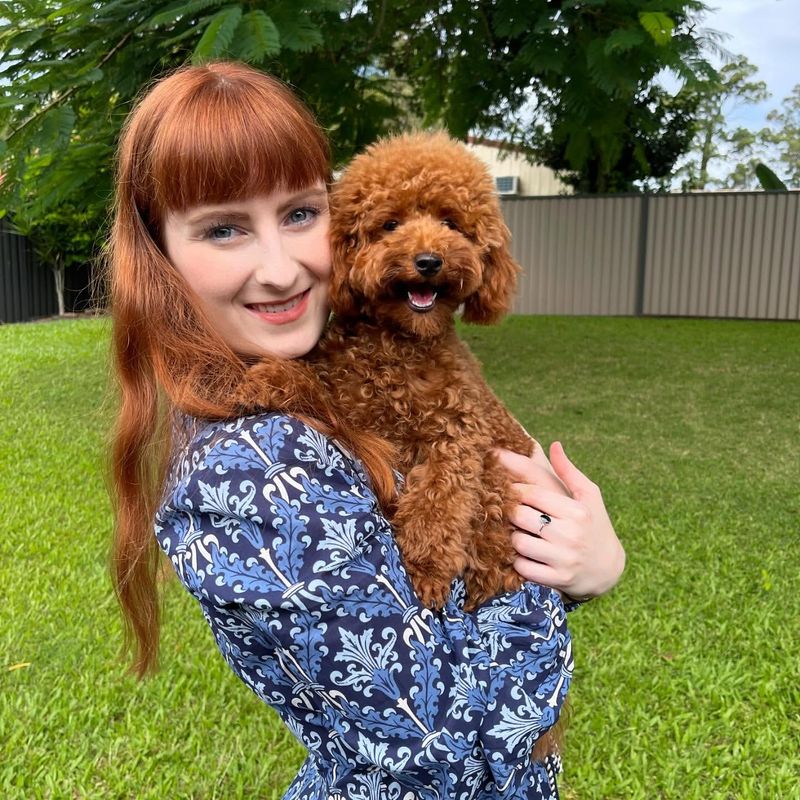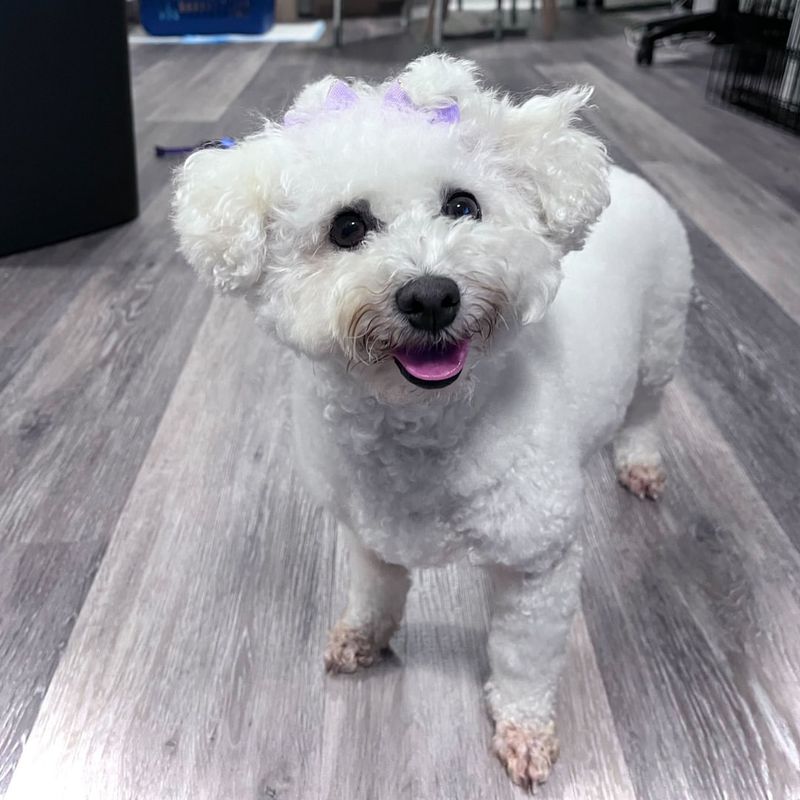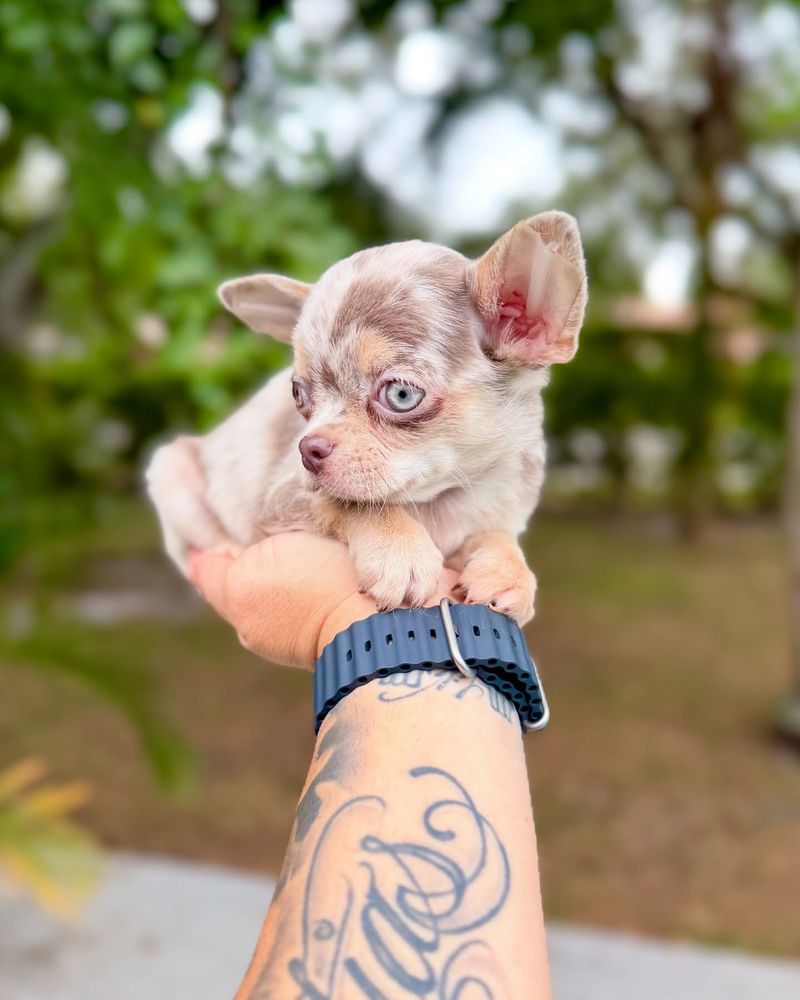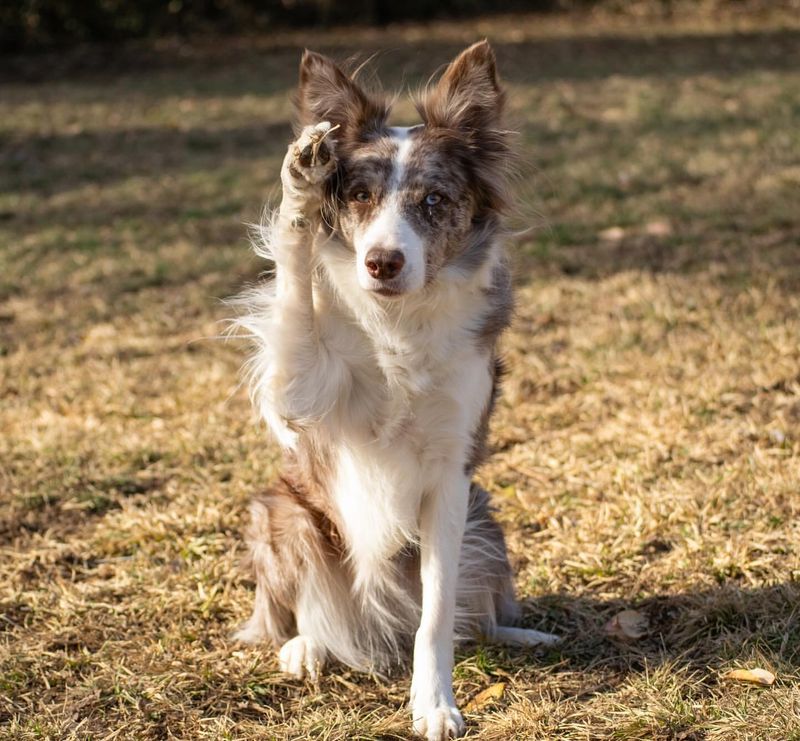Therapeutic dogs are more than just pets; they are trained companions that promote emotional well-being and physical health. These loving canines bring joy and comfort to individuals in hospitals, nursing homes, and private residences. Known for their gentle demeanor and intuitive nature, therapeutic dogs can ease anxiety, provide companionship, and assist with mental health therapies. In this blog post, we will explore 17 top therapeutic dog breeds that are known for their healing abilities and comforting presence. Discover which breeds might be the perfect fit for bringing comfort and healing into your life.
Labrador Retriever
Labrador Retrievers are renowned for their friendly nature and intelligence.
Their gentle temperament makes them ideal companions for therapy work. They easily form bonds with people, providing emotional support to those in need.
Labs are often seen in hospitals and nursing homes, where they bring smiles and comfort.
Their playful yet calm demeanor helps in reducing stress and anxiety. Labrador Retrievers are also highly trainable, making them suitable for various therapeutic roles.
From assisting with physical therapy to offering companionship, they are versatile in their abilities to heal.
Poodle
Poodles are highly intelligent and adaptable, making them excellent therapy dogs.
Known for their hypoallergenic coats, they are suitable for individuals with allergies. Poodles are quick learners, mastering commands and tasks with ease.
Their friendly disposition allows them to connect well with people, offering emotional support.
Poodles’ versatility enables them to work in various therapeutic settings, including hospitals and homes.
Their presence helps in soothing anxiety and fostering a sense of calm. This breed’s elegant appearance and gentle nature make them exceptional therapy companions.
Cavalier King Charles Spaniel
Cavalier King Charles Spaniels are known for their affectionate and gentle personality.
They have a unique ability to sense emotions, making them perfect for therapy work.
These dogs often visit nursing homes and hospitals, where their presence brings comfort and joy.
Their small size and friendly nature make them easy to handle in various settings.
Cavaliers are particularly effective in calming anxiety and providing a sense of companionship.
Their loving gaze and soft touch can brighten anyone’s day, making them cherished therapeutic partners.
German Shepherd
German Shepherds are known for their loyalty and intelligence.
They excel in various roles, including therapy work. This breed’s strong protective instinct makes them reliable companions.
German Shepherds are often used in therapy settings where they help reduce anxiety and build confidence.
Their calm demeanor and ability to follow commands make them suitable for interacting with diverse groups of people.
They are particularly effective in assisting with physical therapy, offering both support and motivation.
German Shepherds’ presence can bring a sense of safety and reassurance.
Beagle
Beagles are cheerful and friendly dogs, known for their merry disposition.
They are wonderful therapy dogs, bringing joy and laughter wherever they go.
Beagles are often seen in libraries and schools, encouraging children in reading programs.
Their playful nature helps ease tension and create an uplifting atmosphere.
Beagles’ small size and easygoing personality make them adaptable to various environments.
These dogs are excellent at offering comfort and companionship, making them a favorite choice for therapeutic engagements.
French Bulldog
French Bulldogs have a charming and affectionate demeanor.
They are known for their ability to make people smile, acting as natural mood lifters.
French Bulldogs are often used in therapy settings where they provide emotional support.
Their compact size and playful nature make them easy to handle, especially for children.
They excel in creating a calming presence in places like hospitals and clinics.
French Bulldogs are particularly good at helping alleviate feelings of loneliness and sadness, offering warmth and companionship.
Yorkshire Terrier
Yorkshire Terriers may be small, but they have big hearts.
Their affectionate and lively nature makes them wonderful therapeutic companions.
Yorkies are often found in nursing homes and hospitals, where their presence brings joy.
Their small size allows them to easily cuddle on laps, providing warmth and comfort.
Yorkshire Terriers are skilled at sensing emotions, offering support to those in distress.
Their playful antics and loving demeanor make them delightful partners in therapeutic settings, helping to lift spirits and ease stress.
Bernese Mountain Dog
Bernese Mountain Dogs are known for their gentle giants’ nature.
They possess a calm and patient demeanor, making them ideal for therapy work.
These dogs excel in settings like hospitals and schools, where their size brings a sense of security.
Bernese Mountain Dogs are particularly effective in assisting with physical therapy, providing support and motivation.
Their friendly nature and soothing presence help alleviate stress and anxiety.
This breed’s ability to connect with people of all ages makes them exceptional therapeutic companions.
Bichon Frise
Bichon Frises are cheerful and affectionate dogs, known for their playful spirit.
They excel in therapy settings where their lively nature uplifts moods.
Bichons are often seen in children’s hospitals, providing entertainment and comfort.
Their hypoallergenic coats make them suitable for individuals with allergies.
Bichon Frises’ small size and friendly disposition allow them to connect easily with people.
These dogs are skilled at bringing smiles and laughter, making them cherished companions in therapeutic environments.
Havanese
Havanese dogs are known for their sociable and loving nature.
They thrive in therapy roles, offering companionship and support.
Havanese are often used in nursing homes and hospitals, where they bring a sense of joy and warmth.
Their small size and affectionate demeanor make them easy to handle and interact with.
Havanese dogs are skilled at alleviating feelings of loneliness and sadness.
Their playful antics and gentle touch create a comforting presence, making them beloved therapeutic partners.
Golden Retriever
Golden Retrievers are celebrated for their gentle and tolerant nature.
They are highly empathetic, sensing when someone needs comfort. This breed is often used in therapy work due to its calming presence.
Golden Retrievers excel in environments like hospitals and schools, where they provide emotional support.
Their patience and adaptability make them perfect for interacting with children and the elderly.
They are known for their ability to alleviate stress and promote relaxation. This breed’s natural inclination to please makes them outstanding therapeutic companions.
Pomeranian
Pomeranians may be small, but they are full of energy and affection.
Their friendly nature makes them wonderful therapy dogs.
Pomeranians are often used in settings where their lively spirit uplifts people.
Their fluffy coats and adorable appearance bring smiles and joy to those they encounter.
These dogs excel in offering emotional support, particularly in environments like hospitals and homes.
Pomeranians’ playful demeanor and loving nature create a warm atmosphere, making them delightful companions in therapeutic roles.
Maltese
Maltese dogs are known for their gentle and affectionate nature.
They are excellent therapy dogs, providing comfort and companionship.
Maltese are often seen in nursing homes and hospitals, where their presence brings peace.
Their small size and calm demeanor make them easy to handle, especially for the elderly.
Maltese dogs excel in alleviating stress and promoting relaxation.
Their loving gaze and soft touch create a soothing environment, making them cherished therapeutic partners for those in need.
Corgi
Corgis are known for their playful and spirited nature.
Their friendly disposition makes them excellent therapy dogs.
Corgis are often found in schools and community centers, where they bring joy and laughter.
Their short stature and lively antics make them popular among children.
Corgis excel in offering emotional support, particularly in environments that benefit from a cheerful atmosphere.
Their wagging tails and loving nature create a sense of happiness, making them delightful companions in therapeutic settings.
Shetland Sheepdog
Shetland Sheepdogs are known for their gentle and intelligent nature.
They excel in therapy roles, offering support and companionship.
Shelties are often used in hospitals and nursing homes, where their calm demeanor soothes patients.
Their ability to read emotions allows them to connect well with people in distress.
Shetland Sheepdogs’ loyalty and loving presence create a comforting environment, making them cherished therapeutic partners.
Their fluffy coats and friendly gaze are effective in bringing smiles and relieving anxiety.
Chihuahua
Chihuahuas may be tiny, but they have a big heart.
Their affectionate nature makes them excellent therapy dogs.
Chihuahuas are often found in settings where they offer comfort and companionship.
Their small size allows them to easily cuddle on laps, providing warmth and support.
Chihuahuas’ lively spirit and loving disposition help in reducing stress and anxiety.
These dogs excel in creating a cheerful atmosphere, making them delightful therapeutic companions for those in need.
Border Collie
Border Collies are known for their intelligence and energy.
They excel in therapy work, offering support and motivation.
Border Collies are often seen in settings like rehabilitation centers, where they assist with physical therapy.
Their ability to learn commands quickly makes them adaptable to various therapeutic roles.
Border Collies’ playful nature and friendly demeanor make them excellent companions for those in need of encouragement.
Their presence creates a stimulating environment, fostering positivity and healing.

















